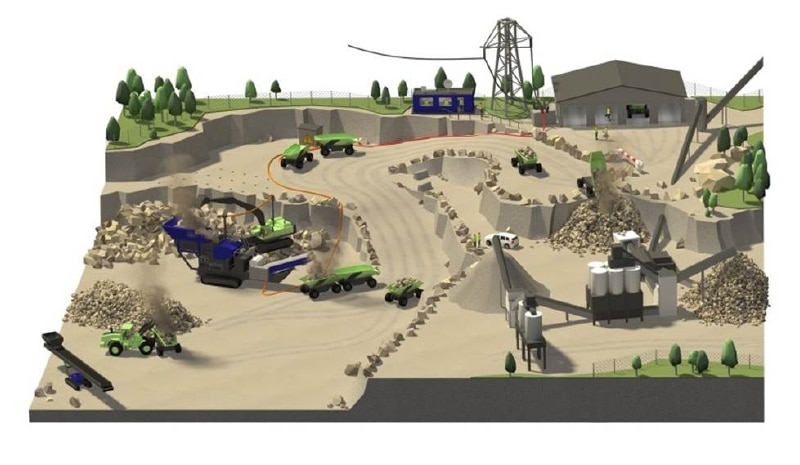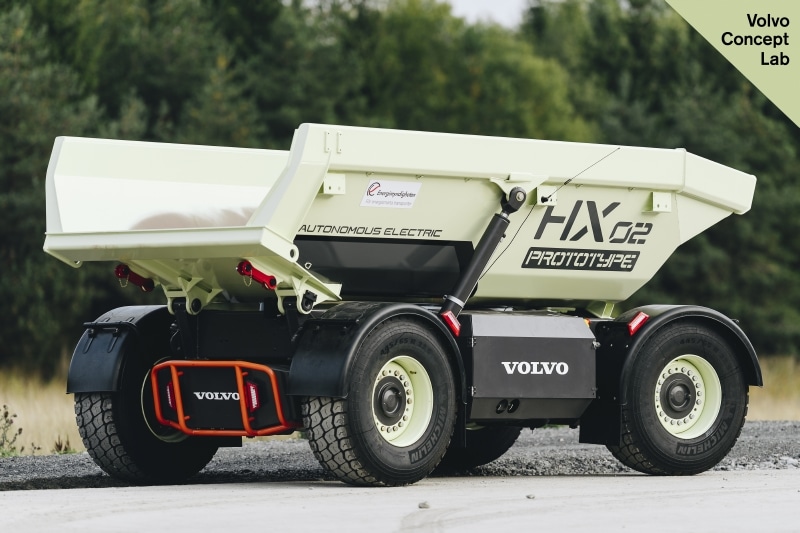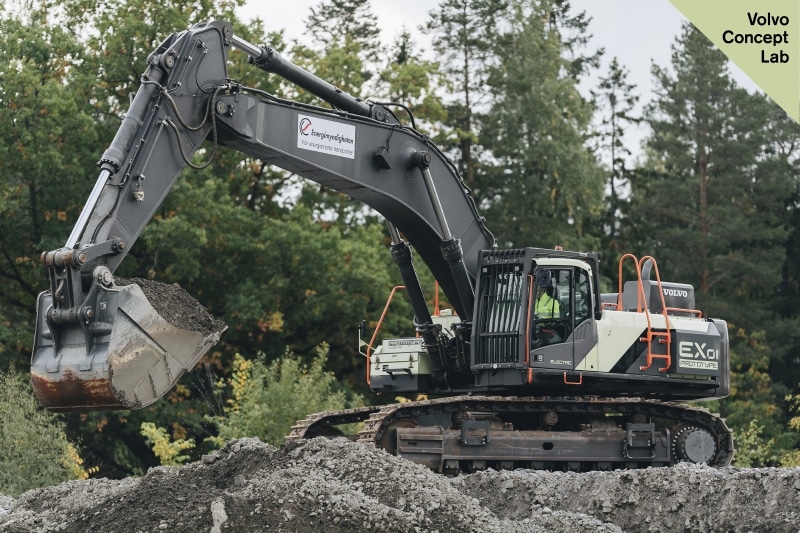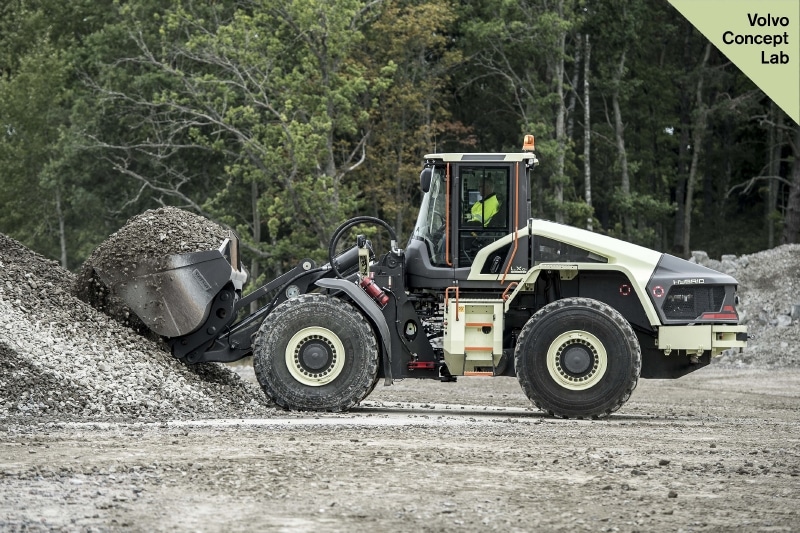On the 29th August, Volvo Construction Equipment and its customer Skanska began testing the viability of its Electric Site concept at Skanska’s Vikan Kross quarry, near Gothenburg, Sweden. The system, which incorporates electric and autonomous Volvo machines, will run in a real production environment for 10 weeks – delivering an anticipated 95% reduction in carbon emissions and 25% reduction in total cost of operations.
“This is the first time that anything like this has been attempted in the quarrying industry and, if successful, Electric Site could serve as a blueprint for transforming the efficiency, safety and environmental impact of quarries around the world,” said Gunnar Hagman, CEO of Skanska Sweden.

With Electric Site, Volvo CE and Skanska are challenging traditional ways of working in the quarrying industry. The project has involved developing new concept machines, work methods, and site management systems which together, form a complete site solution. New technology encompasses machine and fleet control systems and logistic solutions for electric machines in quarries.
“We have had to completely rethink the way we work and how we look upon machine efficiency – pushing the boundaries of our competence,” said Melker Jernberg, president of Volvo CE. “The total site solution we developed together with our customer Skanska is not a commercial solution for sale today and we will evaluate the outcome of the tests but we have learnt so much already, elements of which will be fed into our future product development,”
From Elephants to Ants
“The HX1 was our proof of concept,” explained Uwe Müller, chief project manager for Electric Site at Volvo CE. “Once we knew it was feasible, we updated the design requirements for the HX2 to incorporate shared technologies and components from the Volvo Group, such as electric motors, batteries and power electronics. Integrating a completely new drivetrain was crucial to take full advantage of the groundbreaking electromobility developments that are happening inside the Volvo Group. Another new feature is the addition of a vision system, which allows the machine to detect humans and obstacles in its vicinity.”

Electric Upgrade
“To fit the new components in the machine without increasing its size required a significant amount of repackaging work,” Müller explained. “However, in terms of the operator interface and controls, nothing has changed – it’s operated in exactly the same way as a conventional Volvo excavator. If the cable is connected, the machine will automatically start in electric mode. If it’s not, it will start in diesel mode.”
“Because the machine will be relatively static – only moving a few meters once or twice a day as the excavator works its way through the blasted rock – it’s ideally suited as a fully electric machine on a cable. This has allowed us to make it a zero-emission excavator when it’s plugged into the grid. However, we’ve designed it with flexibility in mind, so that we have the option of using the diesel engine when it’s needed, for example, to reposition the machine or quickly move it prior to blasting,” he continued.
Strong and Silent
The piles of material on the site are organised by the LX1, Volvo CE’s prototype electric hybrid wheel loader. The machine can deliver up to a 50% improvement in fuel efficiency, as well as significant reductions in emissions and noise pollution compared to its conventional counterparts. The LX1 is a ‘series hybrid’ that incorporates a driveline that consists of electric drive motors mounted at the wheels, electric-driven hydraulics, an energy storage system, a significantly smaller diesel engine and new machine architecture, including a new design of the lifting unit. It is this combination that enables the substantial gain in fuel efficiency. The prototype – which has 98% new parts and a fundamentally new machine design – can do the work of a wheel loader that is one size larger.

Milestone Inauguration
“It is exciting to finally see how the Volvo prototype machines work together along with the charging systems. I feel extremely proud to be part of this innovation – and to work closely with such talented colleagues at Volvo CE and Skanska,” said Joakim Käpynen, production manager for Skanska’s Vikan Kross quarry. “Electric Site proves that with cooperation and transparency throughout the entire value chain, you can really make a difference.”
Find out more here: https://www.volvoce.com/global/en/this-is-volvo-ce/what-we-believe-in/innovation/electric-site/





